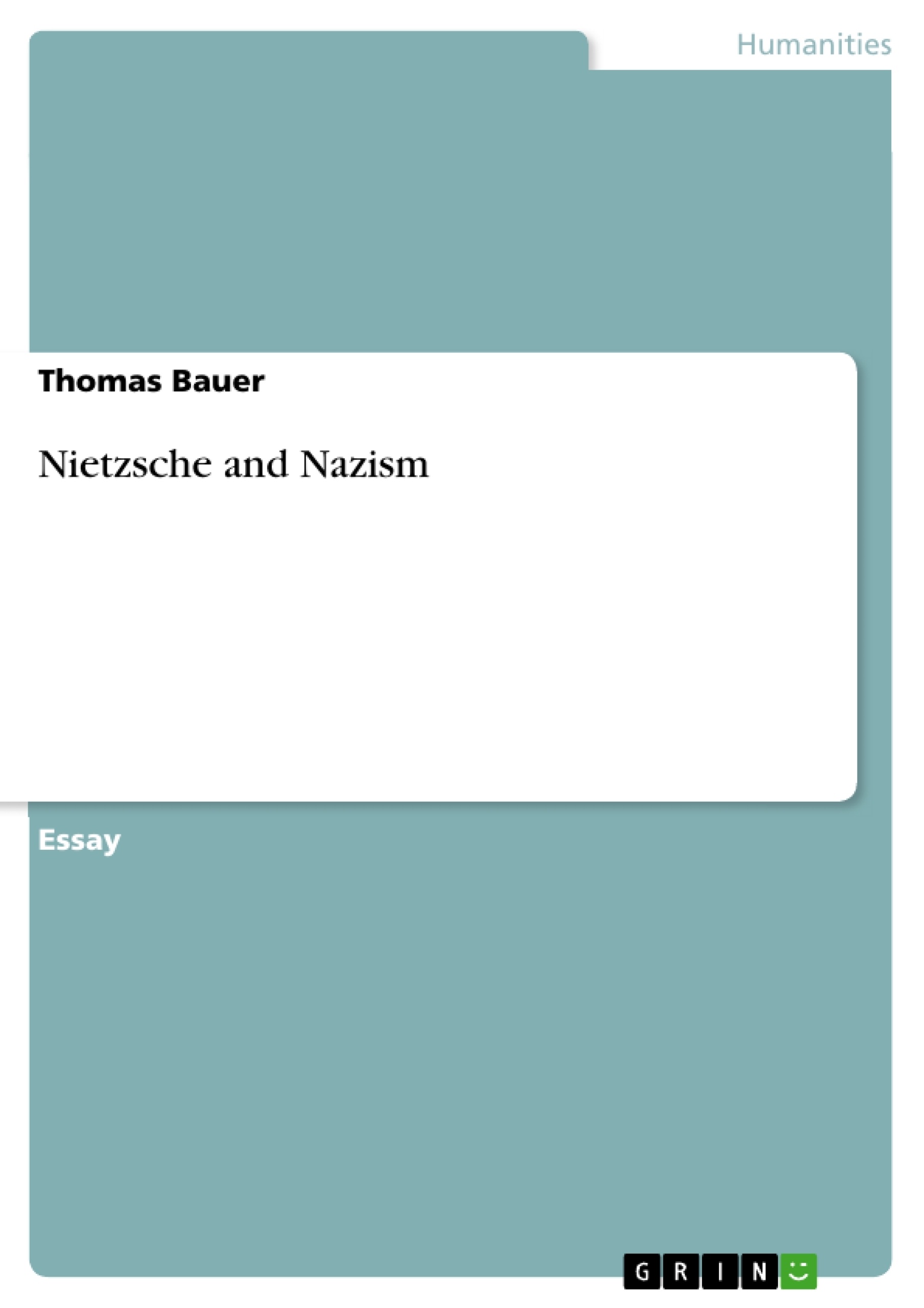“Wer mit Ungeheuern kämpft, mag zusehn, daß er nicht dabei zum Ungeheuer wird. Und wenn du lange in einen Abgrund blickst, blickt der Abgrund auch in dich hinein.“
The German Philosopher Friedrich Nietzsche was born on October 15, 1844 in Röcken bei Lützen near Leibzig. His father was a Lutheran church minister. After his secondary schooling he went to the University of Bonn to study Theology and Philosophy. But he was not really interested in these subjects so he changed to Philology. Nietzsche was also very interested in music. In his early years he read the German romantic writer Friedrich Hölderlin and later on Schopenhauer. Friedrich Nietzsche began very early with his writings, mostly commentaries about ancient Greek philosophers. In January 1971 he started with one of his own big works, Geburt der Tragödie. Untill his physical collapse, Nietzsche wrote a lot of books and gave us a huge body of philosophical work. In his writings he proclaimed the death of god and a new kind of human super being; he wanted to establish a new moral understanding without a Christian background. When we read his books we often hear about Übermensch, Wille zur Macht und Umstürzung aller Werte. Hitler used these and other early writings about Jewish people to justify his ideology and his genocide. We do not know if Hitler ever read Nietzsche but there is a similarity between his writings and the writings of Nietzsche. Nazi philosophers and anti-Nazi philosophers have argued over Nietzsche. Who was right? Throughout history a lot of people have wanted to establish whether Nietzsche can be blamed for Nazism or not.
Table of Contents
- Übermensch, der Wille zur Macht und Umstürzung aller Werte
- Friedrich Nietzsche – the Philosopher of the Third Reich?
Objectives and Key Themes
This essay aims to compare the arguments of Kurt Rudolf Fischer and Jacob Golomb/Robert S. Wistrich regarding the potential influence of Friedrich Nietzsche's philosophical work on the Nazi ideology. It explores whether Nietzsche can be considered a "godfather" of Nazism.
- The relationship between Nietzsche's writings and Nazi ideology
- The concept of "Übermensch" and its potential connection to Nazi racial theories
- The death of God and its implications for morality
- The role of historical context in interpreting Nietzsche's work
- The potential for different interpretations of Nietzsche's philosophy
Chapter Summaries
The essay examines the arguments of Fischer and Golomb/Wistrich, focusing on their interpretations of Nietzsche's philosophy and its potential connection to Nazism. Fischer emphasizes the significance of understanding the "real" Nietzsche, arguing that his philosophy laid the groundwork for the emergence of Nazism, particularly through the concept of the death of God and the resulting potential for a new morality. Golomb/Wistrich, on the other hand, highlight the complexity and ambiguity of Nietzsche's work, emphasizing that it can be interpreted in multiple ways and should not be reduced to a single ideology. The essay concludes with a discussion of the historical context of Nietzsche's writings and the challenges of judging his work in the light of later historical events.
Keywords
Nietzsche, Nazism, Übermensch, Wille zur Macht, death of God, morality, historical context, interpretation, anti-Semitism, fascism, philosophy, "godfather," "experiment," Jewish-Christian values.
- Arbeit zitieren
- Thomas Bauer (Autor:in), 2005, Nietzsche and Nazism, München, GRIN Verlag, https://www.grin.com/document/66094



